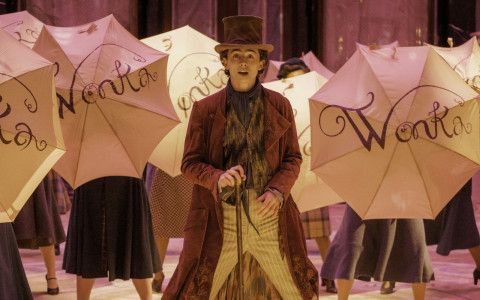Who Do You Think You Are?
Info, Showbusiness •
10.09.2024 • 23:40 - 00:40
Originaltitel
Who Do You Think You Are?
Produktionsland
GB
Produktionsdatum
2024
Info, Showbusiness
Rose Ayling-Ellis came to fame on EastEnders and captured the nation's hearts when she won Strictly. Since then, she's used her platform to campaign for deaf rights. Now, Rose goes in search of her family history. She's heard a rumour of Italian ancestry on her father's side and is hoping for a bit of drama on her mum's. Rose starts by visiting her mum in Kent. Rose's mum has an intriguing picture of Rose's three-time great-grandmother. The family story is that she ran a pub in Birmingham with an iron fist. But Rose's mum doesn't know her name or if any of the stories are true. To find out, Rose heads to Birmingham. Local historian Simon Briercliffe helps Rose put a name to her three-time great-grandmother - Agnes Chilton. Trade directories and census returns show that Agnes and her husband Alfred ran a pub. A local newspaper article tells a story worthy of an EastEnders plotline: Agnes and Alfred were caught up in an altercation with a customer, resulting in a court appearance. Rose discovers that Alfred died aged 48, leaving Agnes a widow. Fearing the worst for a woman on her own at that time, Rose is happy to discover that shortly after Alfred's death Agnes moved to her own pub, the Aston Tavern. Rose heads there to meet historian Professor Julie-Marie Strange and discovers that Agnes married again at the age of 50. However, two years later, Agnes's second husband also died. Once again, Agnes was undeterred and expanded the pub further. Rose is delighted to find out that the current landlord of the Aston Tavern has named the rooms after former landlords, including Agnes. As Rose goes to find the room named after her ancestor, she reflects on what a resilient woman Agnes was. Rose then turns to the paternal side of the family. At her dad's house in Somerset, Rose's grandma tells her that her father, Rose's great-grandad, came from a huge family of 17 children. She doesn't know a lot about them but remembers that her grandfather, James Welland, Rose's great-great-grandad, lost his hand in an accident, and she also recalls her dad telling her that when he was a child, they were very poor and lived in a squat in Exeter. Rose also asks about the Italian connection. Rose's dad explains that this story came through his dad's side of the family. They think that it was a great-grandmother or great-great-grandmother who came from Italy and anglicised their name from Leone to Lyons. Rose wants to start with finding out how her great-great-grandfather lost his hand. The family rumour is that it may have happened in a railway accident. At the Great Western Railway Museum, Rose reads a record that confirms her great-great-grandfather James was injured while working on the railroads. At the time, accidents were common, and James was one of many who tried to claim compensation for his injury. Unfortunately, he was unsuccessful, but Rose is fascinated to have discovered that she has an ancestor with a disability. Rose picks up the story in Exeter, where she discovers her great-great-grandfather James and his family were frequently mentioned in the city's board of guardians' records. In the 1920s, the family's house in one of the city's slums was cleared, but finding a new home for such a large family was difficult. Eventually, an unusual arrangement was made. The family rented an empty wing of a workhouse on Gladstone Road. Rose recognises the road as the one her grandma mentioned, but the family weren't squatting; they were paying rent. Attempts were made to evict the family, and the board of guardians said they had received complaints that the family was noisy, playing music into the night. A newspaper investigation found no evidence of this, and Rose concludes that the board just wanted them out. Finally, the family found themselves in a newly built council house, which James Welland lived in until he died. Rose still has one final family mystery to solve - can she find the Italian connection? Genealogist Lucy Browne helps Rose trace the Lyons line back through three generations, but to Rose's disappointment, they were all born in Devon. Nonetheless, Rose is encouraged by the name of her four-time great-grandfather Pasquel Lyons - it doesn't sound like an English name. The documents show that he worked as a hawker in South Molton. There, Rose meets historian Dr Oskar Jensen. Oskar shows Rose a census record from 1851, and Rose is delighted to see that it shows Pasquel's place of birth as Italy. Rose can finally claim Italian heritage. They speculate that Pasquel may have stayed because he fell in love, as he married a local woman. He carried on working as a hawker until he died aged 82 in 1882. Rose finishes her journey driving through Exmoor, looking out at the same landscape that her four-time great-grandfather was familiar with. She reflects on her family's stories of strength and resilience.
Film-Archiv

Der Pianist
Drama • 2002

"Tár"
Drama • 2022

Türkisch für Anfänger
Komödie • 2012

Wo die Lüge hinfällt
Komödie • 2023

Wonka
Komödie • 2023

Thelma – Rache war nie süßer
Abenteuer • 2024

Joker
Thriller • 2019

No Hard Feelings
Komödie • 2023

The Creator
Scifi-Action • 2023

Twisters
Actionthriller • 2024
Alles steht Kopf
Spielfilm • 2015

Arthur der Große
Drama • 2024

Eine Million Minuten
Drama • 2024

Deadpool & Wolverine
Sciencefiction-Komödie • 2024

















